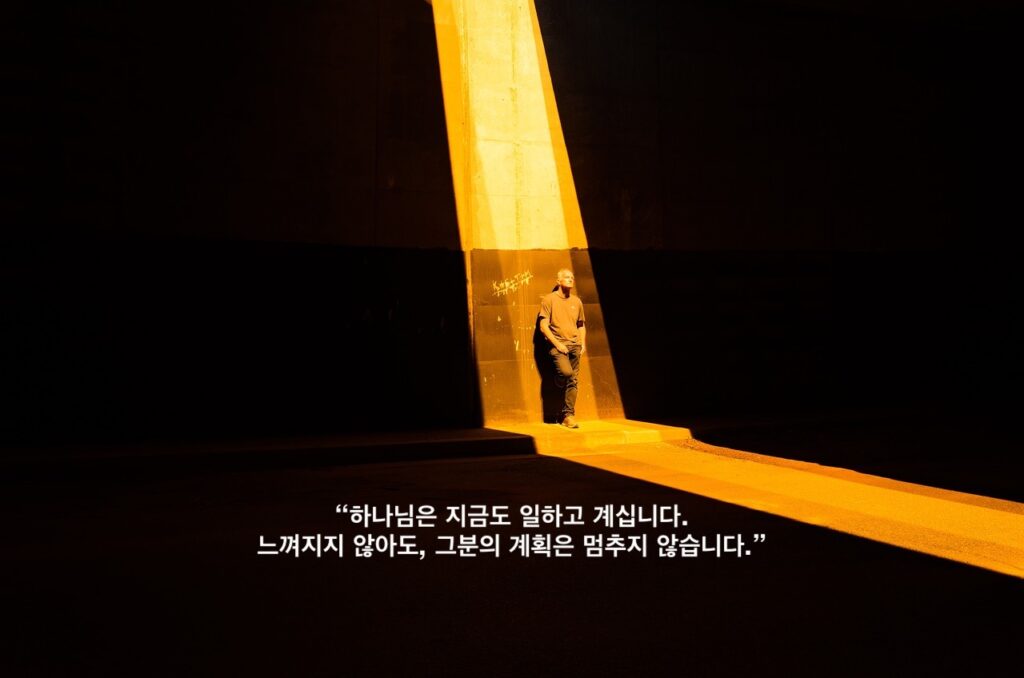When the Center Shakes: What Happens Within Us in Times of Spiritual Instability
Faith can appear strong, yet it often wavers under the slightest tremor. Even those who regularly attend church, pray diligently, and immerse themselves in the Word are not immune to sudden spiritual emptiness. It may come after a shattering event, prolonged unanswered prayers, or simply through the weariness of repetitive life. In these moments, we experience a quiet erosion of the soul.
And the first thing to disappear is not zeal or tears—it’s honesty before God.
We stop opening our hearts to Him. Prayer becomes a routine. Scripture is read but means little. Worship continues, but only in bodily presence. At some point, we begin practicing a faith designed not to grow, but to avoid disruption. Ironically, in our attempt to preserve faith through caution, we accelerate its collapse.
Faith collapses from the center
When faith wavers, many examine the externals: “Have I prayed enough?” “Did I miss a service?” “Have I neglected the Word?” These are all valid markers. But true instability begins deeper—in the displacement of God from the center. When He becomes a consultant or a crisis manager rather than Lord of our lives, the shaking has already begun.
At its core, faith rests on trust. Once trust erodes, the shell of faith may remain, but its vitality fades. The real danger comes not when we start questioning God, but when we stop asking anything at all.
What vanishes first is not prayer, but honesty before God
In seasons of instability, prayer may continue, but sincerity often does not. To mask our inner collapse, we resort to religious language: “Lord, I entrust everything to You,” or “Let Your will be done.” Deep down, we know we are no longer being honest.
True prayer sounds like this: “Lord, I’m exhausted.” “God, this feels so unfair.” But the more fragile our faith feels, the more we fear expressing that vulnerability—even to God.
Yet God desires our raw honesty. The Psalms are filled with complaints, grief, and desperate pleas. The psalmists didn’t hide their despair—they offered it. Authentic faith doesn’t suppress emotion; it surrenders it to God.
How to examine yourself when faith begins to tremble
The first step is to confront your true self. Ask: “What emotions am I feeling right now?” “Do I claim to believe in God while actually distrusting Him?” “When I pray, who am I really talking to?”
But the most essential question is this: “Am I being honest before God?” If you can answer that truthfully, you’re already on the road to restoration. Faith doesn’t get stronger through effort—it gets real when we return to the place of personal encounter with God.
To tremble is to move. Even when we lose our balance in life’s storms, we instinctively search for grounding. But spiritual tremors shake not just feelings—they unsettle our identity.
When prayers seem to echo off a wall, when worship feels hollow, it feels like faith itself is vanishing. But what’s truly slipping away is our perspective of what faith is.
Faith is not what we hold—it’s what God holds for us
We often think it’s our job to maintain faith: “I should have prayed more,” “I should have believed harder.” These thoughts, while sincere, often become burdens. Scripture, however, is clear: the author and perfecter of our faith is Christ.
Hebrews 12:2 calls Jesus “the pioneer and perfecter of faith.” Faith is not self-produced; it is a work God begins and completes. Even when we waver, His grip never loosens.
We shake, but He does not. Psalm 46:1 says, “God is our refuge and strength, a very present help in trouble.” His help is not dependent on our stability. In fact, the more afraid we are, the closer He draws. He never abandons His own.
When your faith is faltering, the most powerful thing you can do is pray honestly: “Lord, my faith is fragile—please hold on to me.” That prayer, in your lowest moment, is the rope that keeps relationship from breaking.
Restoration always begins with God’s character
We do not recover faith by fixing ourselves. It’s not about evaluating performance. Restoration comes by looking again at who God is.
God is faithful. Even when we are not, He remains true (2 Timothy 2:13). In times of shaking, what matters most is not how weak you feel, but how strong He remains.
God never leaves His children. He may feel distant, but He is simply waiting until we lift our eyes again. And when we do, He is already there with arms open.
What disappears first in shaken faith is honesty. But it is also the first thing to return when healing begins.
“God, I’m exhausted.” “Lord, I don’t understand why this is happening.” When these words rise again, you are already returning to the place of faith.
To shake is not to fail. To fall is not the end. Faith doesn’t depend on our grip—it depends on God’s grip on us.
That hand still holds you today. That is why your faith can live again.
Maeil Scripture Journal | Faith Column




